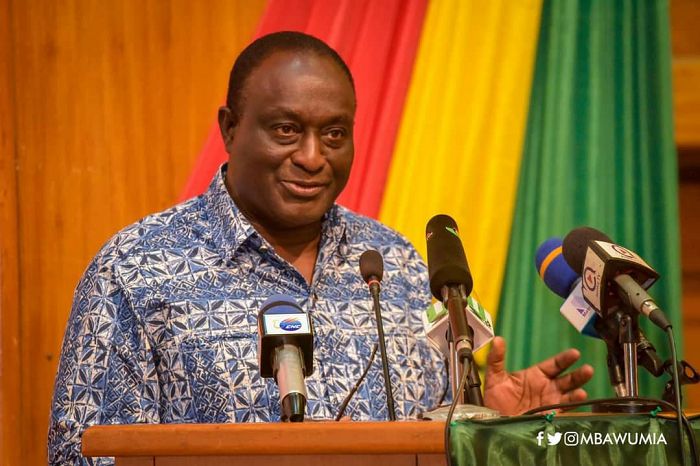
Ghana ready for AfCFTA — Trade Minister
The Minister of Trade and Industry, Mr Alan Kyerematen, has given an assurance that Ghana is ready to take advantage of the African Continental Free Trade Area (AfCFTA) agreement as the country hosting the secretariat.
He said the government had put in place the necessary structures to facilitate the participation of all sectors of the economy, especially the private sector, when the agreement comes into force on January 1, next year.
“I say we are ready on two grounds: first, we have introduced institutional frameworks that make us ready, and I believe you recall that President Nana Akufo-Addo has set up an inter-ministerial facilitation team, made up of critical sector ministers, to provide strategic guidance and support to make Ghana ready for the AfCFTA,” he said.
The Trade Minister asserted Ghana’s readiness when he addressed the closing session of a two-day National Conference on AfCFTA in Accra.
The conference, the second to be held since the agreement came into effect, was organised by the Ministry of Trade and Industry (MoTI), the Ghana Export Promotion Authority (GEPA) and the National AfCFTA Coordinating Office, in collaboration with the United Nations Economic Commission for Africa (UNECA).
It was on the theme: “Empowering Ghanaian businesses to harness the benefits of the African Continental Free Trade Area agreement under the framework of the National Export Development (NED) strategy”.
Participants included chief executive officers (CEOs) in the business community, senior policy makers, parliamentarians, academia, representatives of civil society organisations (CSOs), development partners and the media.
The first National Conference on AfCFTA was held in August 2019.
Well prepared
Mr Kyerematen said as part of Ghana’s preparedness, a National AfCFTA Coordinating Office had been established to coordinate the activities of the economic bloc in the country.
He further indicated that a national steering committee to coordinate and guide the support that would be given to private companies and other stakeholders had been set up.
Additionally, seven technical working groups had been set up to examine the details required to make sure that the policy was supportive and would provide assistance for the benefit of private companies in the country, he said.
He expressed the belief that the increasing intra-African trade envisaged under AfCFTA would lead to a rapid increase in the exchange of agricultural, industrial, financial, scientific and technological products which would significantly enhance Ghana’s economic fortunes, create profit for Ghanaian businesses and provide opportunities for employment for the youth.
Huge opportunity
The President of the Association of Ghana Industries (AGI), Dr Yaw Adu Gyamfi, expressed the readiness of industries to utilise the opportunities presented by the continental trade pact.
He described the citing of the AfCFTA Secretariat in Ghana as a huge opportunity for Ghanaian businesses to leverage the production of goods and services for export.
Dr Adu Gyamfi, who is also the Executive Chairman of the Danpong Group of Companies, encouraged industries to strategise well and invest in building their export capacities.
The CEO of the Private Enterprises Federation (PEF), Nana Osei Bonsu, called on manufacturers to be more innovative and concentrate on adding value to Ghana's raw materials in order to generate more foreign exchange.
He urged the private sector to work in close collaboration with the government to identify trading opportunities.
The Secretary General of the Trades Union Congress (TUC), Dr Anthony Yaw Baah, lauded the government for negotiating the agreement and submitting its instrument of ratification to be part of the trading bloc.
He, however, urged more collaboration among key stakeholders to ensure that the country benefitted fully from AfCFTA.
Advantage
The AfCFTA aims at creating a single continental market for goods and services, with free movement of business persons and investments, to promote intra-continental trade.
The agreement, signed among 54 African countries, with 28 depositing their instruments of ratification, makes Africa the largest free trade area in the world, with a population of 1.3 billion people and a total Gross Domestic Product (GDP) of more than $3.4 trillion.
The agreement was signed in Kigali, Rwanda, on March 21, 2018 and entered into force on May 30, last year when the minimum required 22 countries deposited their instruments of ratification with the Chairperson of the African Union.